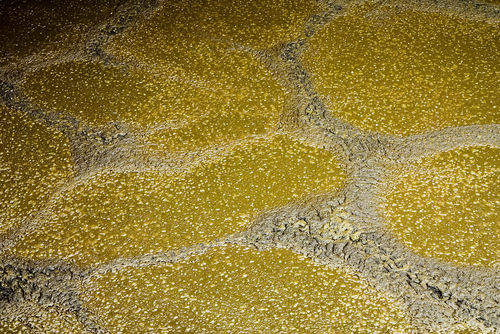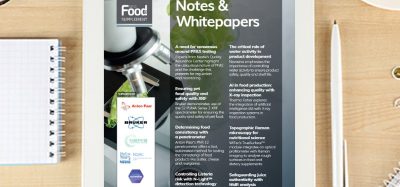£3 million invested to help UK farmers reduce ammonia emissions
- Like
- Digg
- Del
- Tumblr
- VKontakte
- Buffer
- Love This
- Odnoklassniki
- Meneame
- Blogger
- Amazon
- Yahoo Mail
- Gmail
- AOL
- Newsvine
- HackerNews
- Evernote
- MySpace
- Mail.ru
- Viadeo
- Line
- Comments
- Yummly
- SMS
- Viber
- Telegram
- Subscribe
- Skype
- Facebook Messenger
- Kakao
- LiveJournal
- Yammer
- Edgar
- Fintel
- Mix
- Instapaper
- Copy Link
Posted: 1 August 2018 | Iqra Farooq (New Food) | No comments yet
DEFRA has issued the guidance and has provided a package of financial and technical advice to help farmers reduce emissions.


A new guide details the actions UK farmers, contractors and advisors can take to minimise ammonia emissions, thus helping to improve air quality.
The government’s ‘Clean Air Strategy’ highlights the fact that agriculture is responsible for 88 per cent of ammonia emissions in the UK. This ‘over-fertilises’ natural habitats with nitrogen and, combined with other pollutants in the air, produces fine Particle Matter pollution – which is harmful to humans.
The guide, called The Code of Good Agricultural Practice (COGAP) for Reducing Ammonia Emissions outlines simple steps farmers can take, such as using a nutrient management plan to calculate fertiliser application rates. Other actions include changes to slurry storage, spreading equipment and infrastructure, together with digestate and slurry acidification and separation.
The voluntary code has been written by the Department for Environment, Food and Rural Affairs (DEFRA) in collaboration with the National Farmers Union (NFU), the Agriculture and Horticulture Development Board and the Agricultural Industries Confederation.
Thérèse Coffey, Environmental Minister, said: “Air pollution is not just an urban issue and with 88 per cent of ammonia emissions coming from farming, the government is taking concerted action.
“With clear new guidance and financial support, we will help farmers across the country to take action, reduce emissions and help improve air quality.”
DEFRA has issued the guidance and has provided a package of financial and technical support. Its £3 million investment in the scheme will fund specialist experts, who will offer advice, support and guidance on effective methods of reducing ammonia emissions. The investment will also pay for demonstrations of the latest low-emission-spreading equipment.
The RDPE Countryside Productivity scheme is currently offering 40 per cent grants towards equipment advised for in the COGAP scheme, including the low-emission-spreading equipment, digestate processing equipment, slurry and digestate storage bags and mild acidification equipment. Under the Countryside Stewardship Scheme, farmers in priority catchments for reducing water pollution may be eligible for grants towards covers for slurry storage and lagoons.
The guide includes advice on reducing emissions when:
- Storing organic nature
- Applying organic nature
- Feeding livestock
- Housing livestock
- Applying manufactured nitrogen fertiliser
Contributions have also been made by other organisations including ADAS, the British Egg Council, the Central Association of Agricultural Valuers, the Environment Agency, Linking Environment and Farming (LEAF), the National Association of Agricultural Contractors, Natural England, Plantlife and the Tenant Farmers Association.
Related topics
Regulation & Legislation, Research & development, Technology & Innovation
Related organisations
Agricultural Industries Confederation, Agriculture and Horticulture Development Board (AHDB), Department for Environment Food and Rural Affairs (Defra), National Farmers Union









